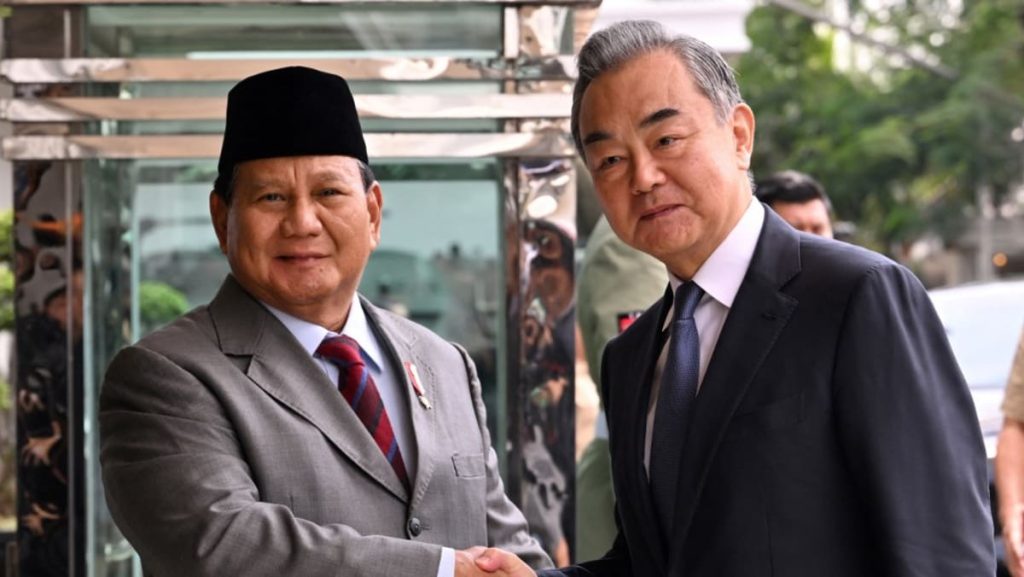China’s top diplomat Wang Yi recently met with Indonesian President Joko Widodo and his successor Prabowo Subianto in an effort to strengthen Beijing’s influence in the region. This follows Prabowo’s visit to Beijing earlier in the month, where Chinese President Xi Jinping praised the relationship between the two countries and outlined a vision for regional peace amidst rising tensions in the South China Sea with other Southeast Asian nations, such as the Philippines. Prabowo, who won a first-round majority victory in Indonesia’s presidential election in February, has expressed support for closer ties with China.
During his visit, Wang also met with Indonesian foreign minister Retno Marsudi before holding discussions with both President Jokowi and Prabowo. Retno stated that Jokowi and Wang emphasized the importance of regional peace and stability, calling for a de-escalation and ceasefire in Gaza between Israel and Hamas. Jokowi reiterated his belief that China, like Indonesia, would utilize its influence to prevent any further escalation in the conflict. This indicates a shared position between China and Indonesia on the issue, highlighting their cooperation in addressing regional challenges.
The meetings between Wang and Indonesian leaders underscore China’s efforts to enhance its relations with Indonesia and solidify its strategic position in the region. With Prabowo’s victory in the presidential election, there is an opportunity for closer cooperation between Jakarta and Beijing in various areas, including trade, defense, and regional security. By engaging with both current and future leaders of Indonesia, China aims to strengthen its ties with Southeast Asia, a region of growing geopolitical importance.
President Jokowi and his successor Prabowo have both emphasized the importance of regional peace and stability, aligning with China’s position on the issue. Their discussions with Wang focused on enhancing cooperation to address common challenges and promote peace in Southeast Asia. By reaffirming their commitment to preventing escalation in conflicts such as the one in Gaza, Indonesia and China demonstrate their mutual interest in promoting stability and cooperation in the region.
The diplomatic engagements between China and Indonesia reflect a broader strategy by Beijing to expand its influence in Southeast Asia and strengthen ties with key regional players. Through dialogue and cooperation with Indonesian leaders, China seeks to deepen economic and political partnerships, as well as address shared concerns on regional security. As tensions escalate in the South China Sea and other areas, China’s engagement with Indonesia signals its commitment to maintaining stability and fostering constructive relations with its neighbors.
Overall, the meetings between Wang Yi and Indonesian leaders highlight the evolving dynamics of China-Indonesia relations, as well as Beijing’s broader efforts to enhance its presence in Southeast Asia. By emphasizing the importance of regional peace and stability, both sides aim to address common challenges and promote cooperation in various areas. As China continues to engage with Indonesia and other regional partners, the outcome of these interactions will shape the future of geopolitics in Southeast Asia and beyond.


